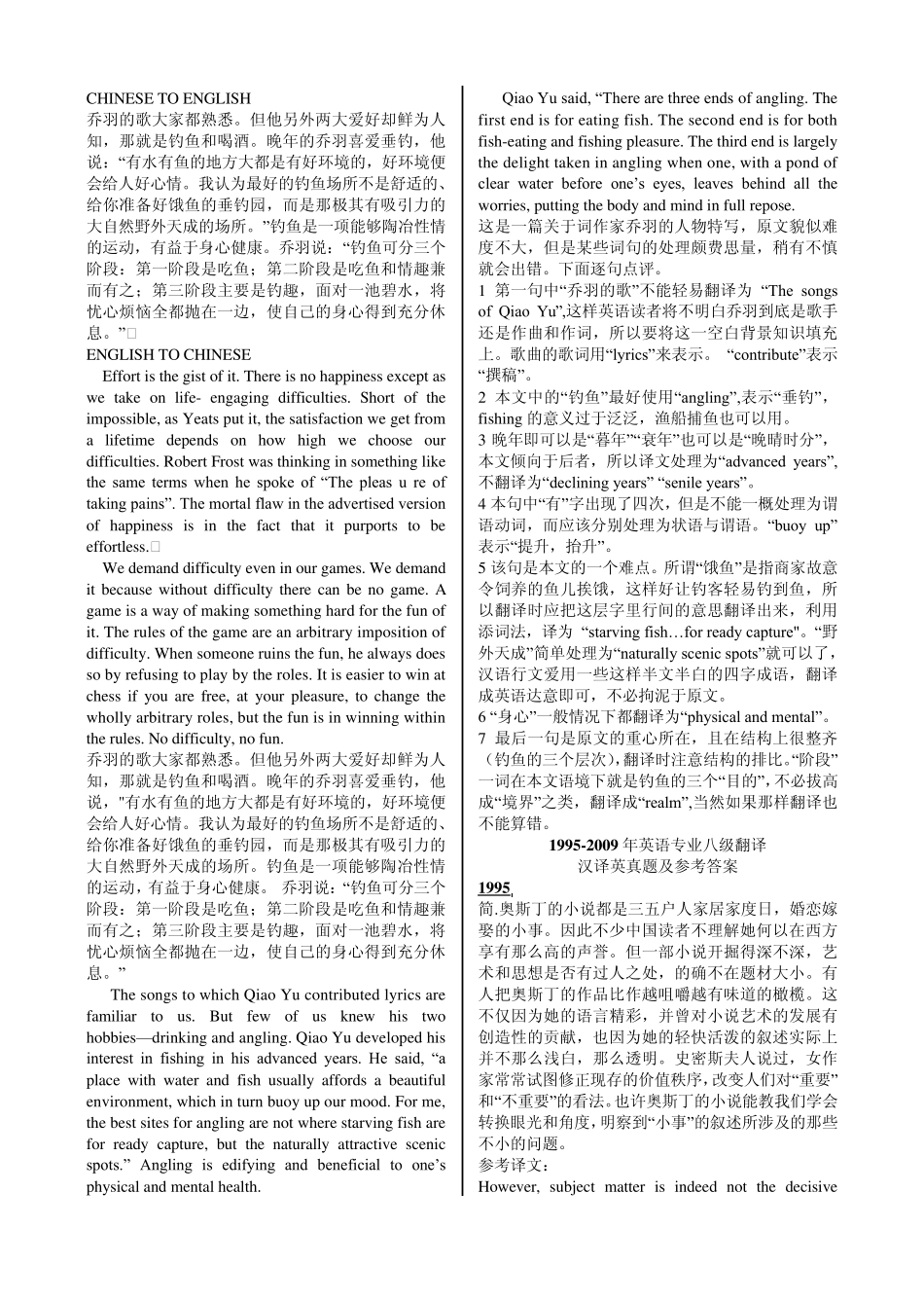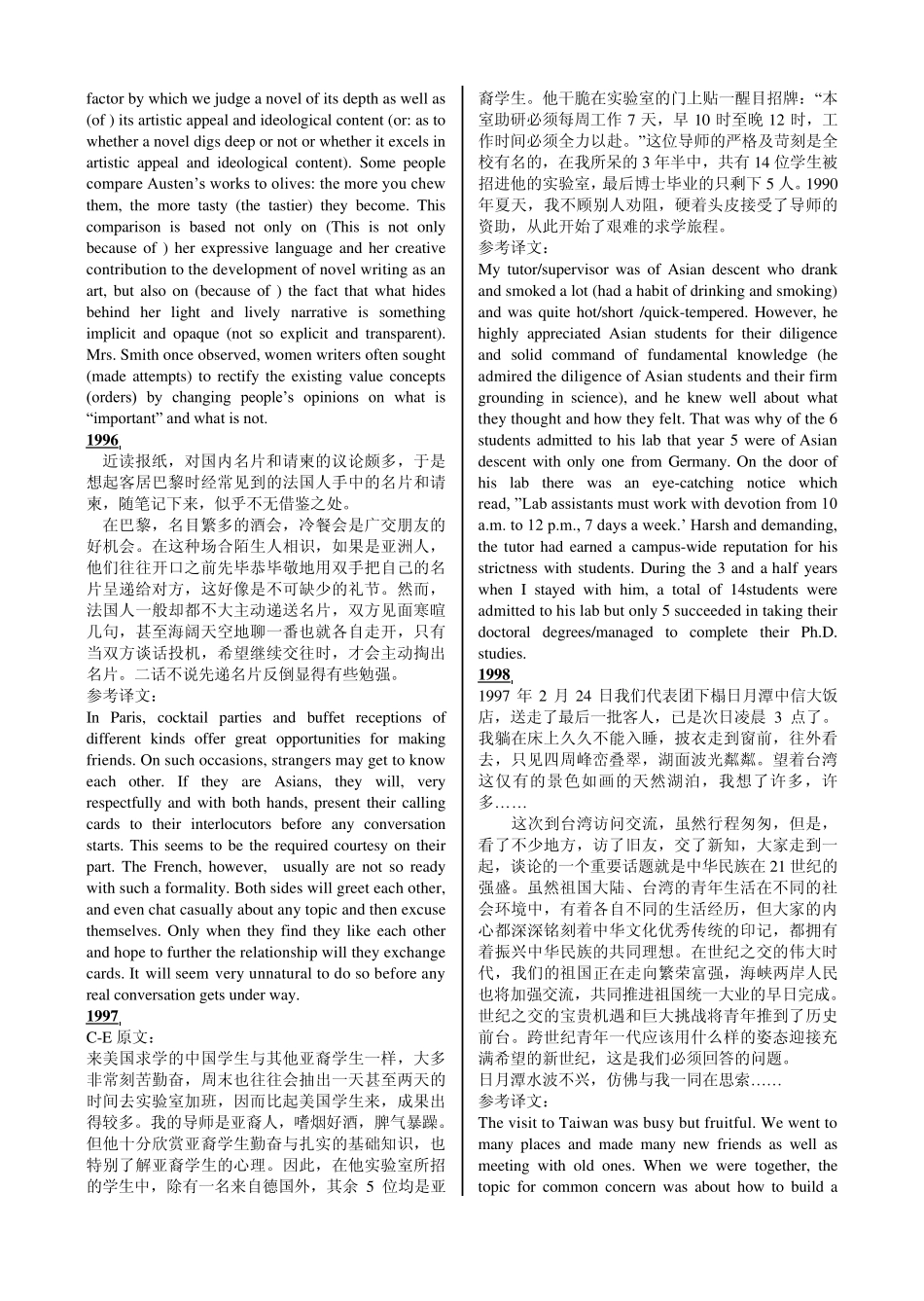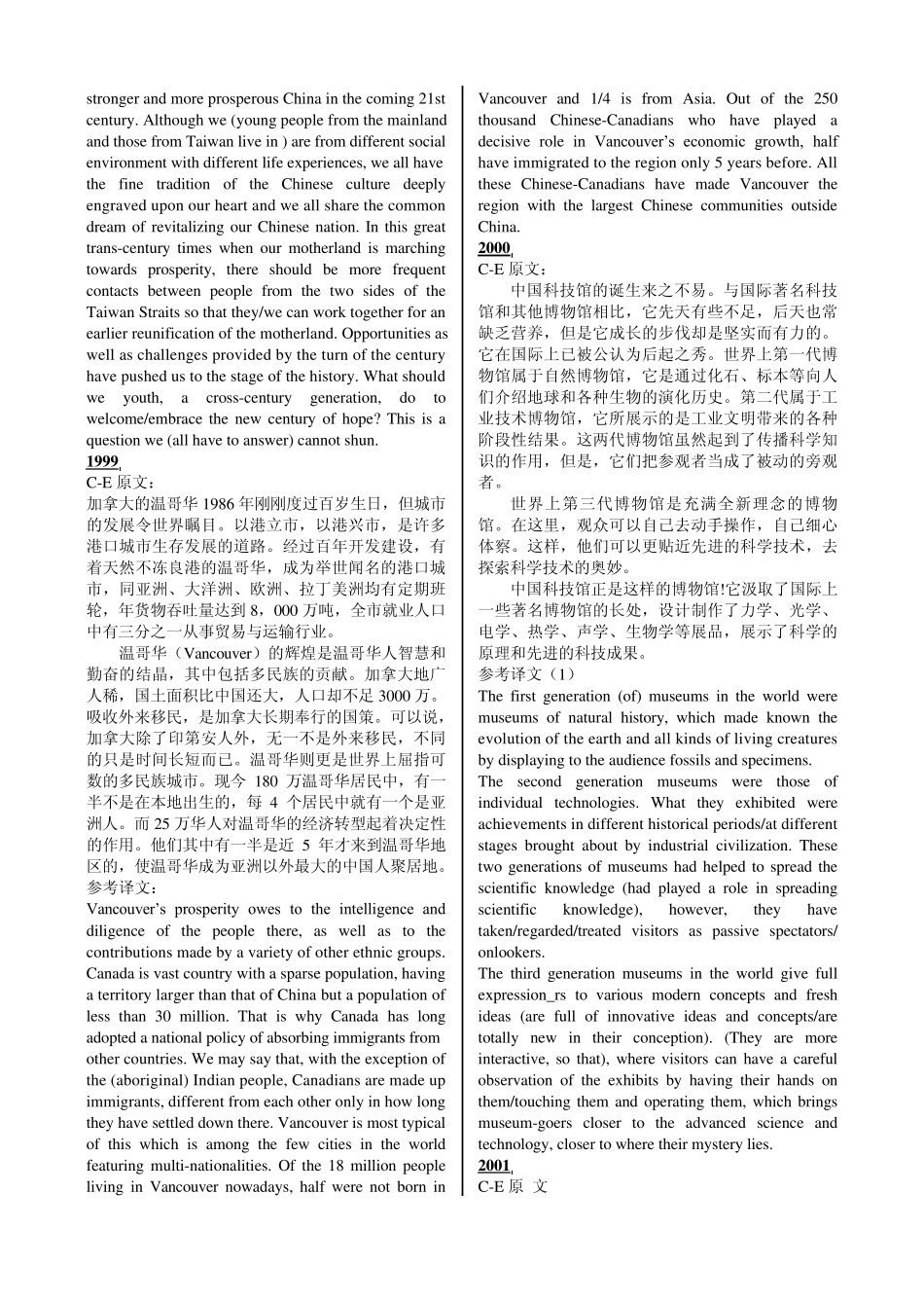CHINESE TO ENGLISH 乔羽的歌大家都熟悉。但他另外两大爱好却鲜为人知,那就是钓鱼和喝酒。晚年的乔羽喜爱垂钓,他说:“有水有鱼的地方大都是有好环境的,好环境便会给人好心情。我认为最好的钓鱼场所不是舒适的、给你准备好饿鱼的垂钓园,而是那极其有吸引力的大自然野外天成的场所。”钓鱼是一项能够陶冶性情的运动,有益于身心健康。乔羽说:“钓鱼可分三个阶段:第一阶段是吃鱼;第二阶段是吃鱼和情趣兼而有之;第三阶段主要是钓趣,面对一池碧水,将忧心烦恼全都抛在一边,使自己的身心得到充分休息。” ENGLISH TO CHINESE Effort is the gist of it. There is no happiness except as we take on life- engaging difficulties. Short of the impossible, as Yeats put it, the satisfaction we get from a lifetime depends on how high we choose our difficulties. Robert Frost was thinking in something like the same terms when he spoke of “The pleas u re of taking pains”. The mortal flaw in the advertised version of happiness is in the fact that it purports to be effortless. We demand difficulty even in our games. We demand it because without difficulty there can be no game. A game is a way of making something hard for the fun of it. The rules of the game are an arbitrary imposition of difficulty. When someone ruins the fun, he always does so by refusing to play by the roles. It is easier to win at chess if you are free, at your pleasure, to change the wholly arbitrary roles, but the fun is in winning within the rules. No difficulty, no fun. 乔羽的歌大家都熟悉。但他另外两大爱好却鲜为人知,那就是钓鱼和喝酒。晚年的乔羽喜爱垂钓,他说,"有水有鱼的地方大都是有好环境的,好环境便会给人好心情。我认为最好的钓鱼场所不是舒适的、给你准备好饿鱼的垂钓园,而是那极其有吸引力的大自然野外天成的场所。钓鱼是一项能够陶冶性情的运动,有益于身心健康。 乔羽说:“钓鱼可分三个阶段:第一阶段是吃鱼;第二阶段是吃鱼和情趣兼而有之;第三阶段主要是钓趣,面对一池碧...


